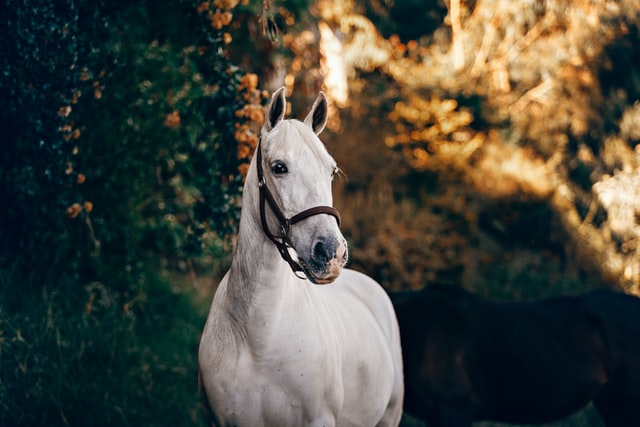Your equine friend is a big part of your life. They provide companionship, love, and support. In return, they need the same level of care and dedication from your side. This means making sure they're well-fed, have access to clean water, and get plenty of exercise.
 |
| A Helpful Guide On Properly Taking Care Of Your Equine Friend [image: unsplash by helena lopes] |
Whether you’re a first-time horse owner or an experienced equestrian, knowing how to take care of your horse properly is essential. By following these simple tips, you can ensure that your horse stays healthy and happy for years to come.
Keep Their Coat Healthy and Clean
A horse's coat is its natural defense against the elements, so keeping it in good condition is essential. This means regular grooming, including brushing and shampooing.
You can also give your horse a coat conditioner to help keep their coat healthy and shiny. Just be sure to read the label carefully and follow the directions, as some conditioners can actually cause more harm than good if misused.
A healthy coat should be shiny and free of tangles. If you notice any bald spots, bumps, or other abnormalities, be sure to have your vet check them out.
Feed Them a Nutritious Diet
Horses are grazing animals, so their diet should consist mainly of hay and grass. However, they also need some grains and other supplements to ensure they get all the nutrients. If you have a particularly fussy eater, you can add powdered beetroot or carrots to their feed to make it more palatable and nutrient-rich. Doing so will give your horse the nutrients needed to maintain health.
Horses need to eat about 2% of their body weight in hay or grass per day. For example, a 1000-pound (454 kg) horse would need to eat about 20 pounds (9 kg) of hay daily.
Grain is typically fed to horses who work hard, such as racehorses or show horses. The amount of grain you provide your horse will depend on their weight, age, and activity level.
Be sure to talk to your vet about the best diet for your horse.
Keep Their Hooves Healthy
A horse's hooves must be trimmed and filed regularly to keep them healthy. You can take your horse to a farrier if you're uncomfortable doing this yourself. Hooves in good condition should be free of cracks, chips, and other abnormalities. Be sure to check your horse's hooves regularly and have them trimmed every six to eight weeks.
If you notice anything wrong with your horse's hooves, take them to a vet or farrier as soon as possible.
Provide Them with Clean Water
It is imperative that horses always have access to clean and fresh water. Their water should be changed daily, and their trough or bucket should be cleaned regularly.
A good rule of thumb is to give your horse one gallon (3.8 L) of water for every 100 pounds (45 kg) of body weight. So, a 1000-pound (454 kg) horse would need 10 gallons (38 L) of water per day. You can also add electrolytes to their water to help them stay hydrated, especially during hot weather or after a strenuous workout.
Exercise Them Regularly
Horses are meant to move, so they need to exercise regularly. Exercising regularly will help keep them healthy and happy. This can be anything from a simple walk around the block to an all-day trail ride. Just be sure to start slowly and gradually increase their workout intensity.
Your equine friend loves to run and play, so make sure you give them the opportunity to do so whenever possible.
Keep Their Stall Clean
A clean stall is vital for your horse's health and comfort. Be sure to clean it out regularly and add fresh bedding as needed.
Your horse's stall should be large enough for them to move around and lie down comfortably. It should also be well-ventilated to prevent respiratory problems.
Train Them
Horses are intelligent animals and can be trained to do various things. However, it's essential to start their training early and be consistent with it.
Horses can be trained for dressage, show jumping, racing, or even simple tricks. Just be sure to find a trainer who has experience working with horses.
Keep Them Up-to-Date on Vaccinations
Horses must be vaccinated against various diseases, such as rabies, tetanus, and equine influenza. Be sure to talk to your vet about which vaccinations are appropriate for your horse. They should also be given a booster shot every year to help keep their immunity up.
Monitor Their Health Closely
Be sure to keep an eye on your horse's health and contact a vet if you notice any problems. Some common health problems in horses include colic, respiratory infections, and lameness. By monitoring your horse's health closely, you can catch problems early and get them the treatment they need.
 |
| [image: unsplash by helena lopes] |
Taking care of a horse is a big responsibility, but it's also a lot of fun. By following these simple tips, you can ensure that your horse stays healthy and happy for years to come, and you get to enjoy all the benefits that come with horse ownership.

No comments:
Post a Comment
Please Leave a Comment to show some Love ~ Thanks